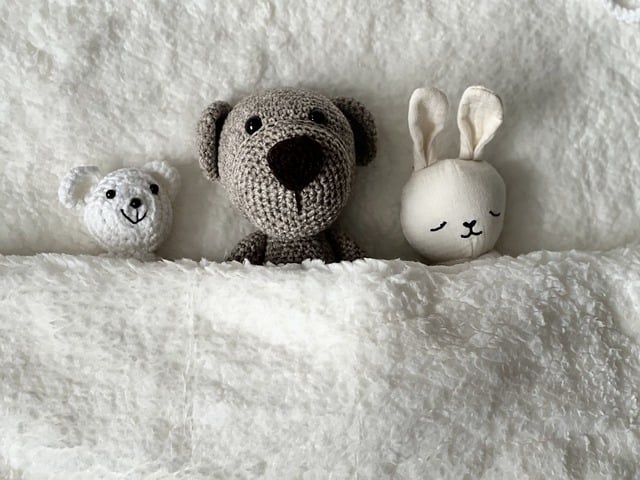



When it comes to feeding baby rabbits, it is important to provide them with a proper diet that meets their nutritional needs. One of the options for feeding baby rabbits is a rabbit milk replacer. This can be either a commercial product specifically designed for baby rabbits or a homemade formula.
A commercial rabbit milk replacer can be easily found at pet stores or online. These products are formulated to mimic the composition of rabbit milk and provide the necessary nutrients for the growth and development of young rabbits.
If you prefer to make a homemade rabbit milk replacer, you can use a combination of ingredients such as goat's milk, water, and a small amount of yogurt. It is important to follow a recipe that is specifically designed for baby rabbits to ensure that they are getting the right balance of nutrients.
Regardless of whether you choose a commercial or homemade rabbit milk replacer, it is important to follow the instructions provided and consult with a veterinarian if you have any concerns.
In addition to a rabbit milk replacer, evaporated milk can also be used as a substitute for rabbit milk. Evaporated milk is a concentrated form of milk that has had the water content removed. It is a good source of protein and can be diluted with water to create a suitable formula for baby rabbits.
When using evaporated milk as a substitute for rabbit milk, it is important to dilute it with an equal amount of water. This will ensure that the formula is not too concentrated and provides the necessary hydration for the baby rabbits.
It is important to note that evaporated milk should only be used as a temporary substitute until a proper rabbit milk replacer can be obtained. It should not be used as a long-term solution as it does not provide all the necessary nutrients for the growth and development of young rabbits.
In addition to milk replacers, water is an essential part of a baby rabbit's diet. It is important to provide clean, fresh water to baby rabbits at all times. Water helps to keep them hydrated and aids in digestion.
When providing water to baby rabbits, it is recommended to use a teat-topped bottle. This allows them to easily drink water without the risk of drowning or getting wet. The bottle should be cleaned regularly to ensure that it is free from bacteria and contaminants.
It is important to monitor the water intake of baby rabbits and ensure that they are drinking enough. If you notice any signs of dehydration, such as dry mouth or sunken eyes, it is important to seek veterinary care immediately.
Egg yolk is another important component of a baby rabbit's diet. It is a good source of protein and essential nutrients. Egg yolk can be mixed with a rabbit milk replacer or water to create a nutritious formula for baby rabbits.
When using egg yolk as a part of the diet, it is important to ensure that it is fully cooked to eliminate the risk of salmonella contamination. The egg yolk can be boiled or scrambled before being mixed with the milk replacer or water.
Egg yolk should be introduced gradually into the baby rabbit's diet and monitored for any signs of intolerance or allergies. If any adverse reactions are observed, it is important to consult with a veterinarian.
Corn syrup can be used as a source of energy for baby rabbits. It provides a quick source of carbohydrates and can be added to the milk replacer or water to provide additional calories.
When using corn syrup, it is important to use it in moderation. Too much corn syrup can lead to digestive issues and obesity in baby rabbits. It is recommended to consult with a veterinarian to determine the appropriate amount of corn syrup to add to the diet.
As baby rabbits grow, it is important to introduce hay into their diet. Hay is an essential part of a rabbit's diet as it provides fiber and helps to maintain healthy digestion.
When introducing hay to baby rabbits, it is important to choose a high-quality hay that is free from dust and mold. Timothy hay is a popular choice for rabbits as it is low in calcium and high in fiber.
Hay should be provided in a separate container or hay rack to keep it clean and prevent it from becoming soiled. Baby rabbits should have access to hay at all times to encourage natural foraging behavior and promote dental health.
As baby rabbits grow, it is important to introduce fresh vegetables into their diet. Vegetables provide essential vitamins and minerals that are necessary for their overall health and well-being.
Some suitable vegetables for baby rabbits include leafy greens such as spinach, kale, and romaine lettuce. It is important to introduce vegetables gradually and monitor for any signs of digestive upset.
Vegetables should be washed thoroughly and cut into small, bite-sized pieces to make it easier for baby rabbits to eat. It is important to avoid feeding them vegetables that are high in sugar or contain toxic substances, such as onions or garlic.
As mentioned earlier, water is an essential part of a baby rabbit's diet. It is important to provide clean, fresh water to baby rabbits at all times. Water helps to keep them hydrated and aids in digestion.
When providing water to baby rabbits, it is recommended to use a teat-topped bottle. This allows them to easily drink water without the risk of drowning or getting wet. The bottle should be cleaned regularly to ensure that it is free from bacteria and contaminants.
It is important to monitor the water intake of baby rabbits and ensure that they are drinking enough. If you notice any signs of dehydration, such as dry mouth or sunken eyes, it is important to seek veterinary care immediately.
A teat-topped bottle is an essential tool for feeding baby rabbits. It allows them to easily drink milk replacer or water without the risk of drowning or getting wet.
When choosing a teat-topped bottle, it is important to select one that is specifically designed for small animals such as rabbits. The teat should be soft and flexible to mimic the texture of a mother rabbit's nipple.
The bottle should be cleaned regularly to ensure that it is free from bacteria and contaminants. It is recommended to use a bottle brush and hot soapy water to clean the bottle thoroughly.
For baby rabbits that are not yet able to urinate or defecate on their own, a wet cotton swab or ear-bud can be used to stimulate these bodily functions.
Gently moisten the cotton swab or ear-bud with warm water and gently rub the genital area of the baby rabbit. This mimics the action of a mother rabbit licking her young to stimulate urination and defecation.
It is important to be gentle when using a wet cotton swab or ear-bud and to avoid causing any discomfort or injury to the baby rabbit. If you are unsure how to perform this task, it is recommended to consult with a veterinarian.
In some cases, baby rabbits may be weak or undernourished and require veterinary care. It is important to seek veterinary attention if you notice any signs of illness or if the baby rabbits are not gaining weight.
A veterinarian will be able to assess the health of the baby rabbits and provide appropriate treatment. This may include additional nutritional support, medication, or other interventions to help the baby rabbits thrive.
It is important to remember that baby rabbits are delicate and require specialized care. If you have any concerns about the health or well-being of the baby rabbits, it is always best to consult with a veterinarian.
In conclusion, a baby rabbit's diet consists of a variety of components including a rabbit milk replacer, evaporated milk, water, egg yolk, corn syrup, hay, veggies, and water in a teat-topped bottle. It is important to provide a balanced diet that meets their nutritional needs and to monitor their health and growth. If you have any concerns about the diet or health of your baby rabbits, it is always best to consult with a veterinarian for guidance and support.
Leave a Reply
Related posts